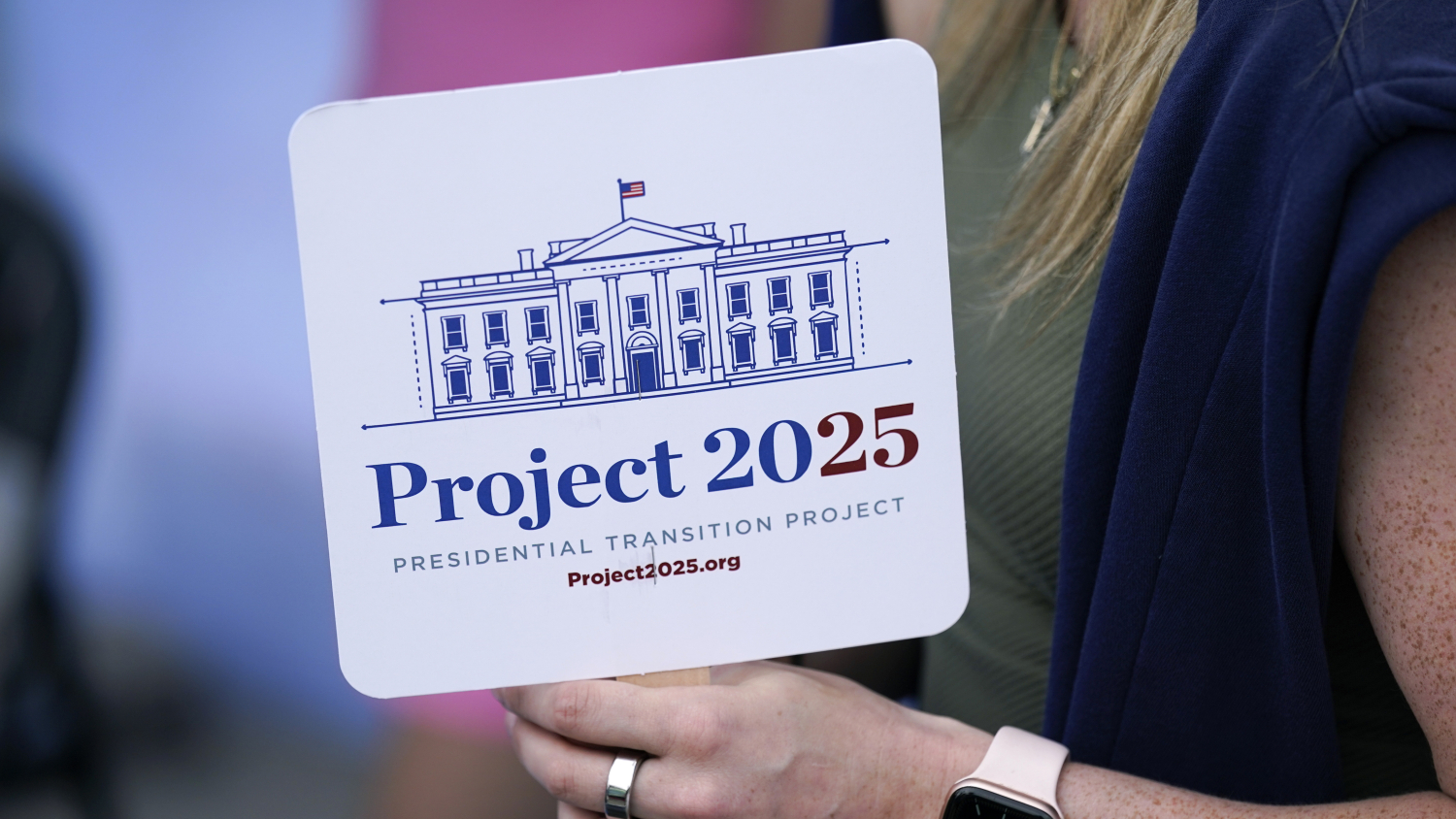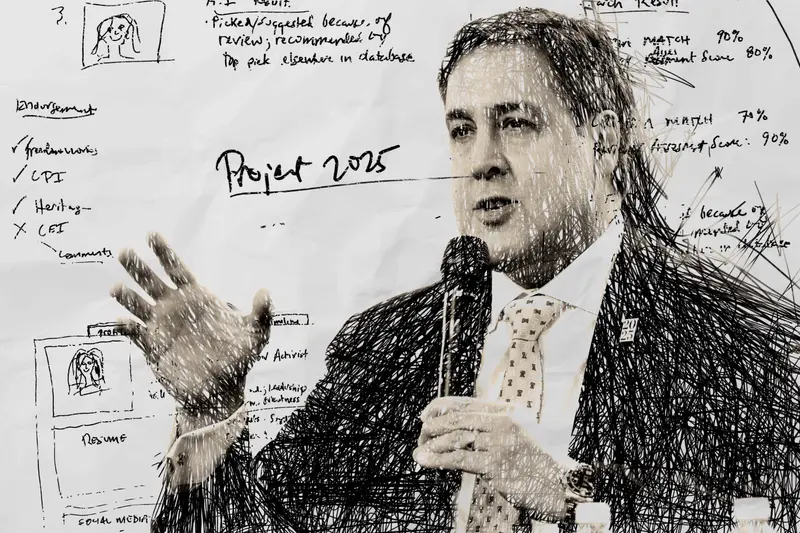Originally by Rachel Fradette at www.wfyi.org
A political initiative that would see an end to the federal Department of Education among other controversial moves to reshape America is under debate across the country.
Project 2025 is a blueprint designed and written by the conservative think tank Heritage Foundation for a future Republican leader. The plan addresses Republican priorities from border protection to healthcare.
Erica Meltzer is the national editor for Chalkbeat, a non-profit news organization, and covers education and politics. She’s written several stories about what Republican priorities outlined in the platform would mean in education and why it’s
WFYI spoke with Meltzer about the conservative platform that’s sparked conversation and some concern.
This interview has been edited and condensed for clarity.
Rachel Fradette: Did any part of the platform’s education rules stand out to you the most when you first read it? Any specific promises to this conservative base that seemed different?
Erica Meltzer: A lot of the things that are in Project 2025 are things that conservatives have backed for a long time, like people have been wanting to get rid of the Department of Education almost since the Department of Education was created.
But I think the thing that’s really notable is the degree to which they really want to withdraw the federal government from education, and that means, for example, phasing out Title I, which provides billions of dollars for schools serving low income kids. They want the states to take over that responsibility, but if it was easy for schools to, if it was easy for states to provide that level of funding, they would probably be doing it already. I don’t think there’s a state in the country where people feel like their schools are adequately funded.
Another example that really stood out was wanting to convert special education funding into vouchers for families to use. And if you think about the types of services that schools provide for students with disabilities, getting something like $1,400 or $1,500 per student. Really can’t buy that kind of support on the private market.
Fradette: As a national editor, what have you heard or read about this part of the plan being discussed across the country?
Meltzer: There’s both a lot of alarm because states, school districts, local agencies, depend on this funding. I do also hear a lot of skepticism that some of these things would actually come to pass. And I think that’s a lot of the debate around Project 2025. Former President Donald Trump on the campaign trail at various points has tried to sort of disavow it. At the same time, many of the people who wrote it are close, high up, members of his previous administration, and it’s really pitched as the blueprint for the next administration. So I do think it’s reasonable to take it seriously. But specifically around eliminating the Department of Education, I think there would be a lot of counter pressures as well.
Fradette: Are these plans being taken seriously? Can this realistically be executed by a Republican leader?
Meltzer: I think dismantling a federal agency is a really big undertaking and Congress would have to be involved. Congress, for better or for worse, has not been known for their bold action in recent years. And I don’t know that we’re going to see that change anytime soon with a divided government, but I think there is a pretty widespread fear that we would see, for example, rolling back protections for LGBTQ students. That’s something that’s in Project 2025, and as part of the Republican Party platform. And we have Republican attorneys general like in Indiana, suing and succeeding in getting injunctions against the expansion of Title Nine rules. So there are things in here that are very live and that I think we should expect to see happen.
There’s other things that are maybe a little more aspirational at the same time, there’s all kinds of things. I don’t know if this is an apt comparison, but people fought for decades to overturn Roe, and for a long time, people thought that that was settled. Well now it’s not and so I think we see that. We certainly see that conservatives have played a long game in terms of some of these policy goals. And I think project 2025 has to be seen in that light.
Fradette: One part of the platform that stood out to me was the repetitive push to end federal student loan forgiveness and moving loans to the private sector. The author writes that student loans need “consumer-driven accountability.” What do you think they’re arguing here?
Meltzer: The authors of project sorry, the authors of project 2025 think it was a mistake for the federal government to get in the business of subsidizing student loans in the first place, and that a lot of higher education is not actually worth the cost. And if all these loans weren’t available, maybe it would cost less that more people should be pursuing shorter term credentials that lead more immediately into the workforce. I think this couples, to some degree, with some conservative skepticism about higher education, as you know, as a place where students develop more liberal ideas, and I think they see it as a matter of personal responsibility. If you take out a loan to go to school, that’s on you the same way, if you use your credit card to buy a refrigerator, it’s on you to pay that back. And they want the government completely out of the business.
So they don’t want the government subsidizing loans. And they definitely don’t think that we should have these various debt forgiveness programs that the Biden administration has pushed and has really prided itself on.
Fradette: In Indiana, the Attorney General Office’s moved quickly to block the Biden administration’s latest version of Title IX protections, which prohibits sex discrimination in education. They joined several other conservative states. What does this platform say about Title IX protections for nonbinary and transgender students?
Meltzer: Most relevant to LGBTQ students, their advancing, they’re saying that the definition of sex is biological sex at birth, and that considering gender identity as part of sex discrimination is is not aligned with the law and not something that the government should do. And that’s that is what the both the Obama administration guidance and these new title nine rules kind of hinge on, is that gender identity is protected under sex discrimination … The gender identity protections hinge to some degree on things like, you can’t discriminate against someone because they don’t. They don’t display stereotypical behaviors, dress, etc, of their sex. So if you know, someone who’s female wears pants, someone whose male has long hair. And so if, if you, if you roll that back, I don’t know quite where the line is.
Fradette: What are your takeaways from their campaign’s plans for education? How do these differ from these conservative policies?
Meltzer: Democratic education policy is in an interesting place right now. In the past, for example under Obama, we saw a big embrace of a lot of education reform policies. You don’t see a lot of enthusiasm for that anymore. But I think if you look at Walt’s record in Minnesota, he passed, he signed into law a big funding increase for schools.
He did a big free lunch expansion. He did a child tax credit to address child poverty, which is something that the Democrats would very much like to do at the federal level. And so I think you see a lot of policies that are aimed at giving more resources to schools, helping schools provide more wrap-around services and addressing some of the out of school social and economic issues that, in turn, make it harder for kids to learn.
That’s where a lot of the energy is, on the left right now, sort of supporting teachers, more money for schools, and addressing some of those social factors.
Read the Original Story





